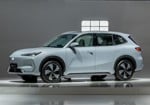The suggestion that any business would purchase goods without knowing exactly what they will cost is unthinkable, yet many organisations buy or lease vehicles without taking into account their total costs.
The truth is it is impossible to say exactly what future costs will be.
However, focusing on expected wholelife costs and using this as a basis for selection will help a company reduce operating costs.
Taxation
Taxation is a key factor. Fleet managers have to consider a range of taxes, including vehicle excise duty; employees’ benefit-in-kind liability; writing-down allowances, which allow employers to offset the depreciation of cars against tax; and employer’s class 1A national insurance contributions (NICs), which are based on the manufacturer’s recommended retail price and take no account of discounts the company may have obtained.
The capital allowance system is aimed at rewarding fleets running cars with CO2 emissions under 161g/km by allowing them to write down more of the depreciation cost against tax.
Expenditure on cars above 160g/km will attract a 10% writing down allowance (WDA) and expenditure on cars of 160g/km or below will attract the normal 20% WDA.
“The impact depends on a number of factors, but for a typical fleet vehicle emitting under 161g/km and over 110g/km this means it will take 10 years to claim 95% of the available capital allowances, but for a vehicle emitting more than 160g/km this rises to more than 25 years,” explains Robert Kingdom, head of marketing at Masterlease.
It is estimated that an average sub-161g/km car could be up to £30 a month cheaper than a similar car with higher emissions.
Car choice policy
Fleets should build a car choice policy around the new tax rules by introducing a 160g/km emissions cap – there are more than 3,000 car models with CO2 emissions under 161g/km.
Pay particular attention to cars with emissions just under 110g/km or 160g/km.
The addition of some accessories – alloy wheels or roof rails – can easily push a vehicle over the threshold figure and dramatically increase its costs.
Fuel
Choosing the right vehicles for a company when considering a car’s costs also means selecting fuel-efficient vehicles, as employees claim less back in fuel costs.
It can also support an organisation’s corporate social responsibility policy by boosting fuel efficiency and encouraging staff to choose more environmentally friendly models.
However, the diesel v petrol question is no longer a “no-brainer” when it comes to comparative fuel costs, claims Paul Hollick, general manager, sales development, at Alphabet.
“As fuel consumption of new petrol models improve and diesel continues to command a price premium at the pumps, diesel’s basic fuel cost performance has narrowed considerably,” says Hollick.
Residual value
A vehicle’s depreciation, the difference between the purchase price and the residual value of the vehicle, is also a key factor.
“As a rule of thumb, the best way to manage depreciation is to run cars that will be desired in the used car market,” explained Mike Hind, communications manager at CAP.
“Principally, this means choosing practical, economical cars and ensuring you don’t load them with the kind of expensive additional options that have little or no value to the used car buyer.”
Service, maintenance and repair Finally, maintenance in terms of scheduled and predictable servicing costs and the cost of incidental repairs, such as broken wing mirrors or windscreens, need to be taken into account. SMRs can vary dramatically and often rise sharply at higher mileages or contract lengths.
For a benchmark pence per mile cost on more than 4,000 vehicles, visit www.fleetnews.co.uk/running-costs
Case study: Skipton Building Society
Skipton Building Society signed a sole supply outsourcing agreement with ALD Automotive for a wide range of services covering 300 company cars and 60 opt-out employees.
After an initial sale and leaseback with ALD Automotive on 220 company cars, it has started replacing the remaining 80 vehicles with new models following the introduction of a choice list based around wholelife costs.
ALD Automotive sales director Mel Dawson explains that it used the AutoSolutions tool to establish wholelife costs.
“AutoSolutions analyses every single factor – both corporate and personal – impacting on vehicle funding, car choice and services and this was crucial during the analysis,” added Dawson.
James Mack, the building society’s general manager – group finance, says the process had provided them with an opportunity to understand and operate their company car scheme “more efficiently than ever before”.
















Login to comment
Comments
No comments have been made yet.